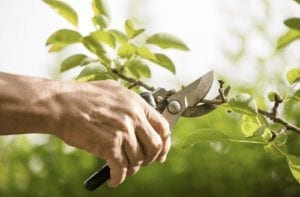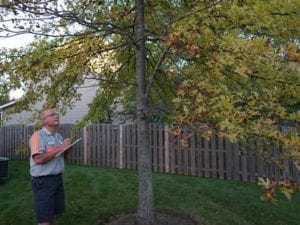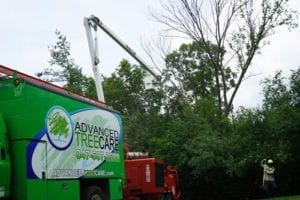Lincolnshire Homeowners Seek Lawn Care Service
It’s inescapable and bittersweet: summer is on the wane. Slowly but surely, the pools will close, sunrise will come later, and local retailers’ shelves will overflow with back-to-school gear. In a few weeks’ time, temperatures will start to drop—and the new season will roll in. With that change, Lincolnshire homeowners seek lawn care services, but what are the best tips to care for your lawn as we transition to fall?
Give your lawn a cold, hard look

Three-quarters of homeowners have a property with a lawn, and of those, nearly 70% think their lawns could be improved. That’s seven in ten homeowners. Are you among them? (Seven in ten readers will say: yes!)
If your yard could be improved—and be honest here—ask yourself if you need a full lawn renovation or merely some focused TLC.
- Does your lawn have a few bare patches here or there?
- Does your grass compete with weeds, like creeping Charlie or crabgrass?
- Does it look a little thin?
If the answer to these questions is yes, you’re going to be able to see definite improvement with adherence to a few basic lawn care principles consistently over the course of the next season or two.
How about, though, if:
- Your yard has a lot of dead patches in it
- You see more weeds than grass
In those cases, you might consider a lawn renovation. A lawn renovation involves killing the existing turf and introducing—via reseeding or a combination of reseeding and sod—new turf that can take over and flourish.
Commit to a proper mowing schedule
Regular mowing keeps your lawn healthy, and it’s important that you create and stick to a mowing regimen. In our area, mowing typically begins the last week of April or the first week of May, depending on the weather. You should mow weekly during periods of rapid growth in late spring and early to mid-summer. Towards the end of summer and into the fall, you might switch to mowing every 10 days to two weeks. Continue mowing until grass has slowed its growth cycle completely.
Water optimally
Don’t overwater your lawn, as frequent watering and overwatering can acclimate your yard to an overdependence on water. In addition, some municipalities have restrictions on when you can—and can’t—water your lawns, because of water restrictions. Be sure to check with yours so you’re not in violation of any local ordinances.
Clear your yard of leaves before the first snow
Before the first measurable fall or winter snowfall, it’s important to have cleared the leaves from your yard. Decaying leaves can introduce mold or disease to your yard, which can affect the health of your yard next season. This situation can also affect the health of your shrubs, ornamental plants, and trees.
Even though we are a tree care company, we believe that a truly healthy property ecosystem reflects its interconnectedness. Trees flourish when your lawn is healthy and disease-free. As the new season arrives, be sure you’re caring for your whole yard.
Advanced Tree Care combines top-notch equipment, cutting-edge technology, and well-trained staff to provide emergency tree removal and tree maintenance services. With a presence in nine counties and two states, we work daily to provide unparalleled customer service, safety, and efficiency—as well as the expertise to beautify your landscaping and community. Advanced Tree Care isn’t just our name—it’s also our purpose!




